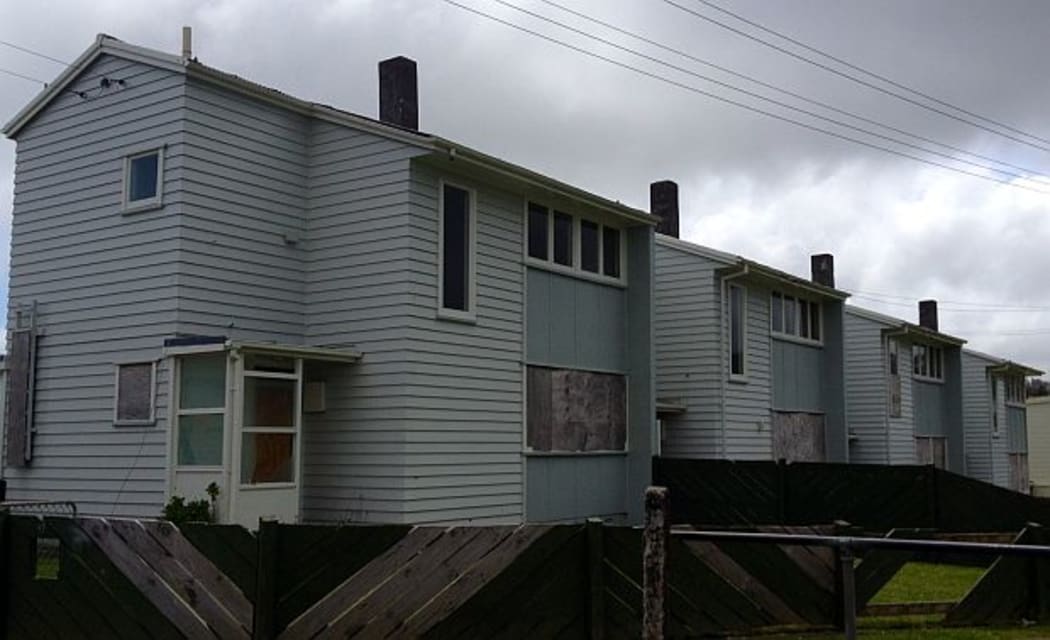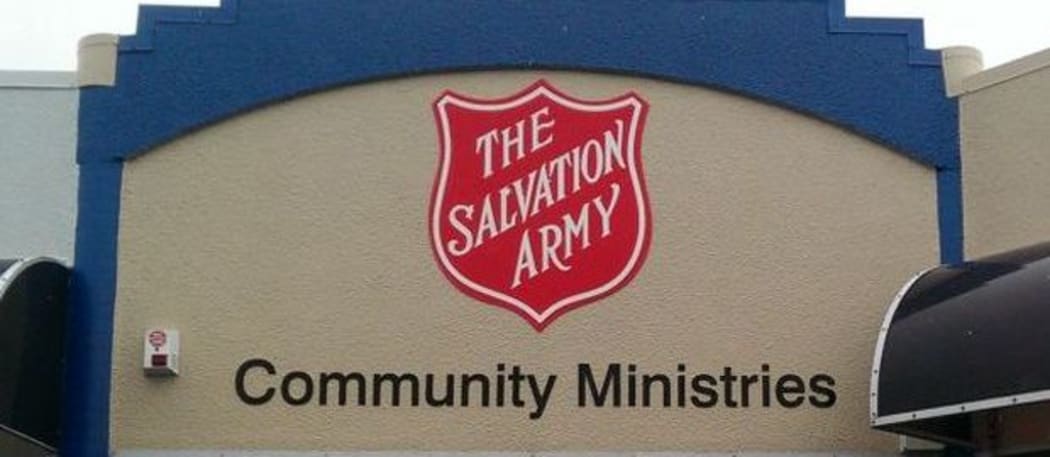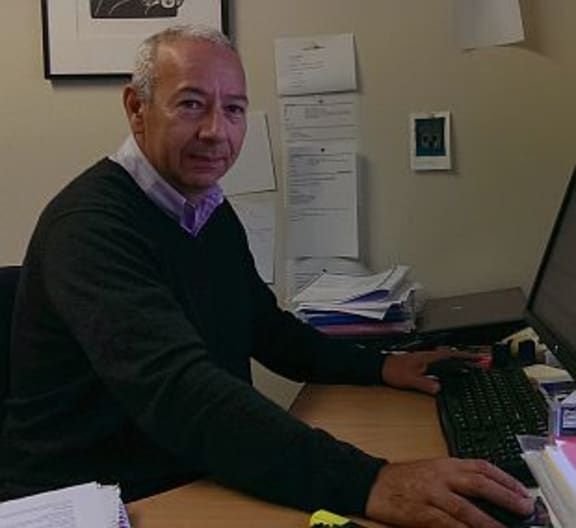The cost of the state house sell-off
With more than 5500 people on the state housing waiting list, the Government is trying to find new ways to get low income families into a home.
Insight has been investigating what that will mean for the taxpayer and those needing help with somewhere to live.

Boarded up housing Cannons Creek, Porirua Photo: RNZ / Teresa Cowie
Insight The Future State of Social Housing
The Government is planning to sell off more almost a third of Housing New Zealand's 68,000 properties, collectively valued at about $18.6 billion.
The Salvation Army already runs 300 of its own houses and it is one of those lining up to have a greater role in social housing.

Salvation Army Manukau Photo: RNZ / Teresa Cowie
The director of its Social Policy and Parliamentary Unit, Major Campbell Roberts, thinks the Salvation Army could buy up to 60 state houses, and if it borrowed more or partnered up with other funders, it could potentially take on thousands.
But it would want to buy them at a reduced price.
Mr Roberts said even if it does manage to secure a discount on the houses, that would still mean a good deal for taxpayers.
He said in the long run, better housing would save taxpayers' money in health, education and through reduced offending.
"That investment will pay off triple-fold for the taxpayer, if it's well done."
But the Finance Minister and Minister Responsible for Housing New Zealand, Bill English, said the Government had yet to decide if it would sell the houses at a reduced rate.
"We need to be fair to the taxpayer - and the social housing providers need to be aware of that. So if they're expecting the Government to provide substantial discounts, we want to run a process that ensures that there's transparency around the pricing and that the taxpayer gets value for money."
It may well be that Housing New Zealand houses aren't worth as much as the Government thinks they are, he said.

Minister Responsible for Housing NZ, Bill English Photo: RNZ / Diego Opatowski
The income-related rent subsidy is another cost to taxpayers that needs to be factored into the whole equation, even after state houses are bought by other providers.
The government subsidy is a payment to Housing New Zealand, or registered community housing providers, so tenants who meet certain criteria don't pay any more than 25 percent of their after-tax income on their rent.
Registered Community Housing providers like the Salvation Army and The Monte Cecilia Housing Trust, based in Auckland, can apply for the subsidy to help them run any houses they might buy from the Crown.
The trust's executive, David Zussman, said it wanted to be a registered community housing provider because it liked the idea that groups have to commit to offering a high standard of housing for families.

Monte Cecilia Housing Trust executive David Zussman Photo: RNZ / Teresa Cowie
"It has also given us the ability to then access income-related rent if that's what we want to do, and we're looking at that very closely now. But it also allows us to get the subsidies we may need to get more houses."
But for David Zussman, the better solution to having more social housing is more government investment in actual houses.
"We need to make a commitment to re-invest dollars in quality services, and re-invest dollars into assets that can be kept long term for the benefit of the community."
Swapping a house for a rent subsidy does not offer any answers to the problem, he said.
But the Government is moving away from focusing on houses and looking more at how it can help people, according to Bill English.
"What's going to happen quite quickly is the debate's going to move on from the current focus on maintaining the houses as a taxpayers' asset, and as a tradition and as almost a form of religion for some people, to a real focus on the individuals in those houses."
Mr English said the Government wants people to have access to better houses with cheaper rent and other social services that will help them move on from social housing dependency into their own homes.

